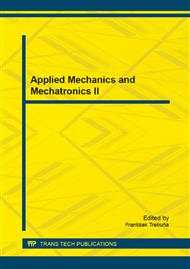p.496
p.509
p.514
p.521
p.526
p.536
p.547
p.555
p.562
Specific Car Manufacturer Recalls
Abstract:
A variety of engineering errors can cause a defect in vehicles. Problems are usually concentrated on models that were produced during a certain time period at one specific plant. Consumers who encounter such problems can report them, fill petitions or put online complaints on specific car manufacturers. Vehicle defects can cause many problems and even endanger human life. That is why, in the interest of safety, any recall affecting the consumer vehicle should be completed without delay. The paper presents recalls of three car manufacturers, namely: Volkswagen group, PSA, and Kia analyzed between years 2005 to 2015. The results are presented in graphs and diagrams. First part of the paper discusses the current terminology and procedures of car recalls. In the second part the three car manufacturers are presented. Recall analysis creates the third part of the paper and the results are presented in form of graphs and diagrams. Also the error rate of each car manufacturer is calculated and presented in the paper.
Info:
Periodical:
Pages:
526-535
DOI:
Citation:
Online since:
November 2015
Authors:
Keywords:
Price:
Сopyright:
© 2015 Trans Tech Publications Ltd. All Rights Reserved
Share:
Citation:


